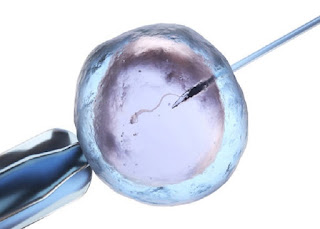Fertility Treatment Options | CRE (previously SIRM-Dallas) Fertility Center | Center for Reproductive Endocrinology
Intrauterine
Insemination (IUI)
Intrauterine Insemination (IUI) is one of several infertility
treatments that uses a small catheter to insert “washed” sperm directly
into the uterus in a process similar to a pap smear. The goal of IUI is to
increase the number of good sperm that reach the fallopian tubes and
subsequently increase the chance of fertilization.
In Vitro Fertilization (IVF) is a procedure first successfully
utilized in 1978 in which a woman’s ovaries are stimulated with fertility drugs
to produce multiple mature eggs, which are then removed from her body and are
fertilized in the laboratory with her partner’s (or donor) sperm. The resulting
embryos are cultured for three to five days, at which point the best 1 or 2
embryos are then transferred back into her uterus.
Patients in need of viable eggs have the option of working with an
agency to select an egg donor. Many factors will be taken into account when
choosing a donor, from overall health to genetic history.
When a woman is unable to carry a baby due to physiological
restrictions, she may use a gestational surrogate (GS). The IVF clinic
needs to be intimately involved and familiar with the process in order to
manage a donor/surrogate cycle effectively.



Comments
Post a Comment